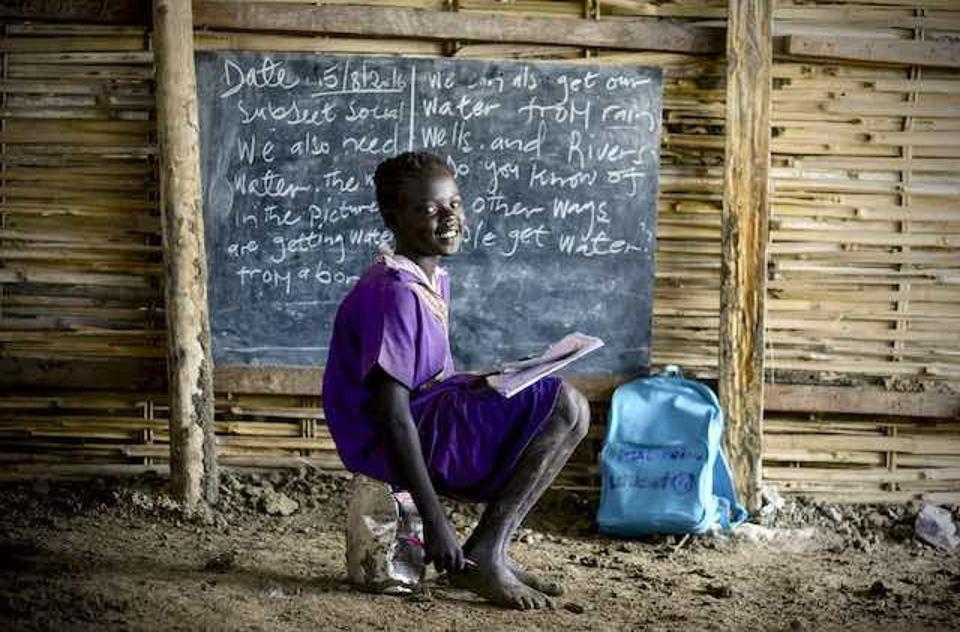By Ben Oduor
None knows the phrase “education is the key to success” better than South Sudan children. To them, getting through the doors of success requires one to swallow the bitter roots of education before harvesting its fruits.
They see hope through the dilapidated mud walled classrooms as they strain to grasp at least some knowledge from lesson taught by teachers. The children are not new to war, they’ve seen it throughout the last decade- as their leaders struggled to gain autonomy and later as the same leaders struggle to wrestle power from each other in an independent state.
The war has ravaged over classrooms and teachers have fled for safety, save for the few that UNICEF has secured a roof for where they can teach at a seemingly peaceful environment. But in their struggles to quench their thirst for education, famine has kept rocking the region; a million people’s lives have been threatened by the scorch, among them 270,000 malnourished children.
But UNICEF South Sudan, through the Humanitarian Action for Children, launched the Education in Emergency program to support displaced children.
Despite the horrors of war the children have witnessed, most of them expressed to the organization their burning desire to pursue education and save their country in the future.
Pictures of children with objects, one with a small stove and another with a broken bucket branded UNICEF, clearly depicts their yearn for learning. The containers would be used as ‘chairs in classrooms that consist of little more than thatched walls, dirt floors and a blackboard.’
One of the pupils, identified as Nyayang, a ten-year-old girl who has carried the old, broken UNICEF water bucket to sit on since there are no furniture in the classrooms, with a book on her lab, is quoted saying: “When I grow up I want to be a teacher to help teach my own people.”
6-year-old Nyaboth, who has brought with her a stove which cooks her food and helps her during classes, says: “My mom cooks for us on this stove and I use it as a chair in school.”
“When I come back home after classes, she takes it away again to cook dinner for us.”
Some of them, like9-year-old Nyapuor, witnessed the war wage and says she’s better placed at the centre.
“I was very frightened by the war. I saw so many people wounded and men shooting guns…I feel safe here…and I want to keep coming to school,” she is quoted narrating, sitting on a battered USAID food can.
One of their teachers, Dang Madang regrets the terrifying occurrences the children have been forced to witness, saying ‘these children have seen and witnessed things no adult, let alone a child, should ever have witnessed.
The country has been at war since 2013 and as many as 50,000 people have been killed whereas more than 2.3million have flee their homes- worsening situation for the world’s newest state.

